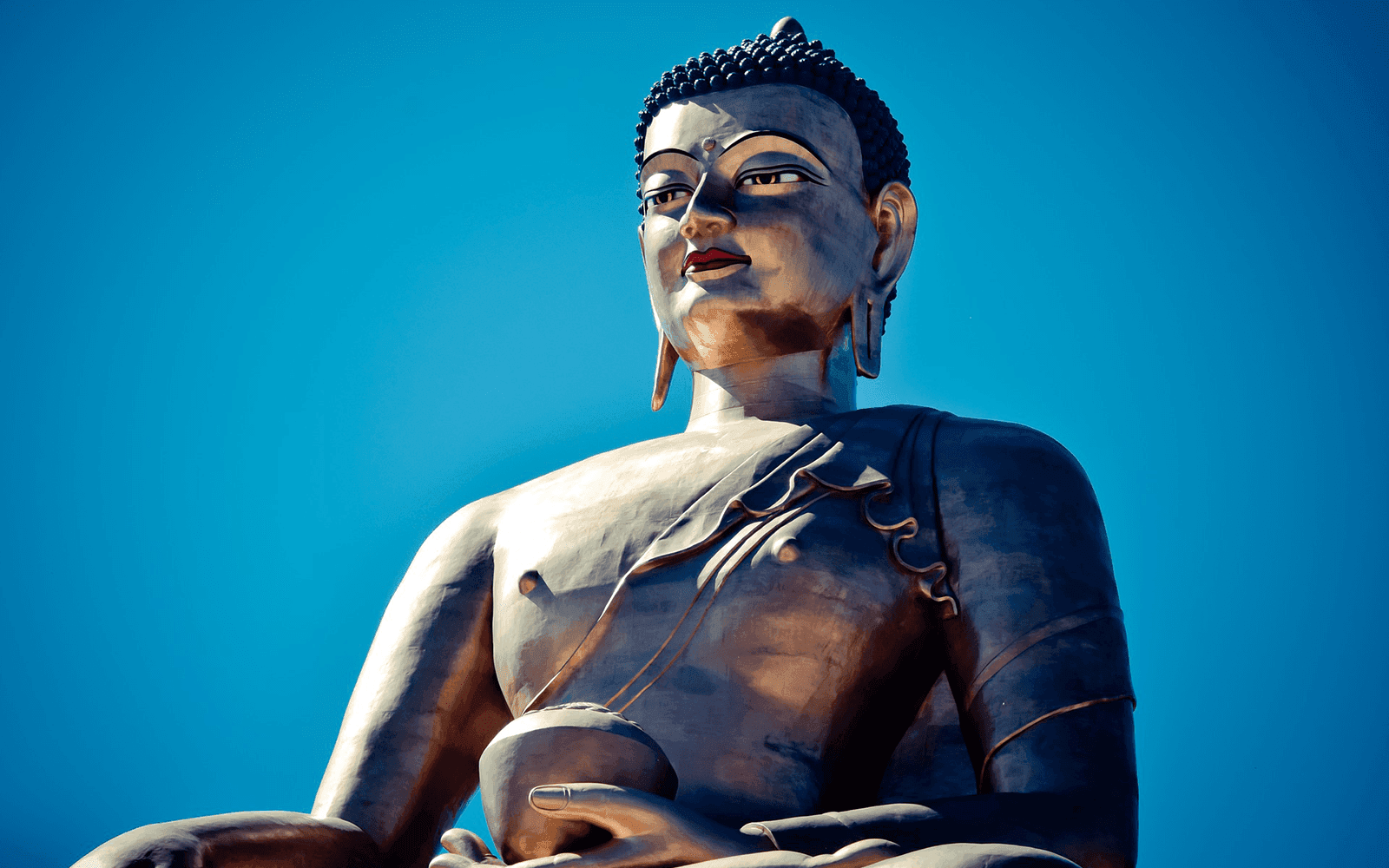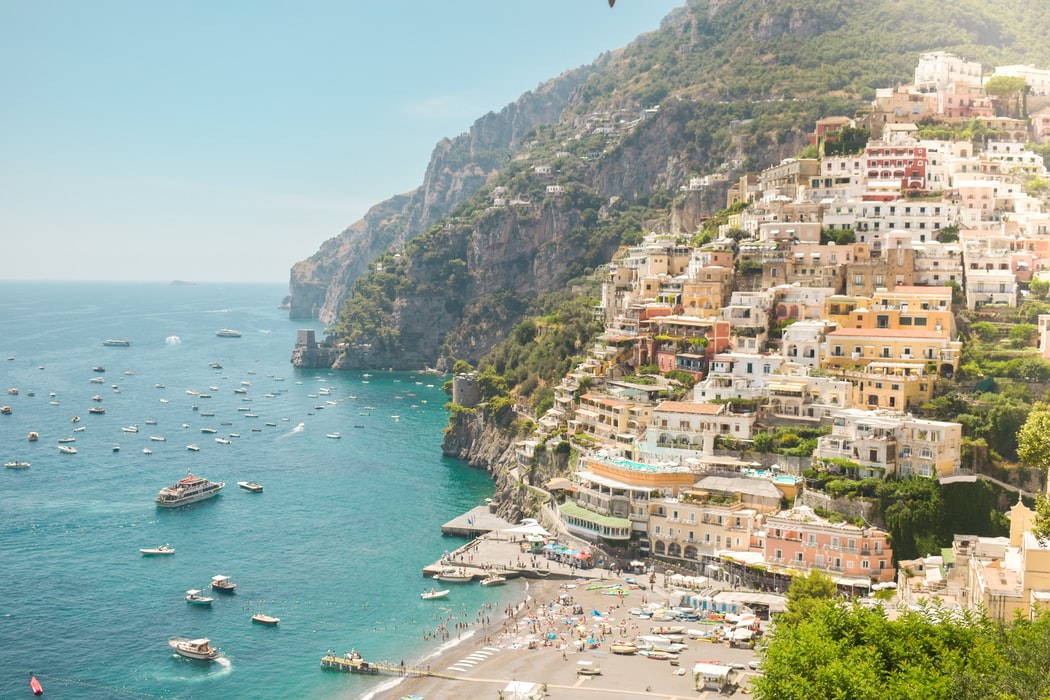Essentials & Advice
Asia-Pacific
Published on December 20, 2017
6 Things to Enlighten You About Bhutan
By Karen MacRae
 Travelling to Bhutan, the land of the thunder dragon, is one of the most culturally fascinating things you will ever do in your life. This little country the size of Switzerland is home to a population of only 800,000 and welcomes a mere 14,000 visitors from beyond its borders each year. This deeply Buddhist country aims to move into the present age and the future with its centuries-long traditions intact…yet keeping in kind with the Buddhist regard for the sanctity for all living beings, and the interconnectedness of it all.
Travelling to Bhutan, the land of the thunder dragon, is one of the most culturally fascinating things you will ever do in your life. This little country the size of Switzerland is home to a population of only 800,000 and welcomes a mere 14,000 visitors from beyond its borders each year. This deeply Buddhist country aims to move into the present age and the future with its centuries-long traditions intact…yet keeping in kind with the Buddhist regard for the sanctity for all living beings, and the interconnectedness of it all.
Bhutan is awash in shapes and colours: feast your eyes (and cameras) upon traditional dzong architecture of squat buildings and rising pagoda roofs to massive mountaintop Buddha statues, while strands of jewel-coloured prayer flags flutter in the wind. From the high peaks of the Himalayas to emerald green valleys traced with rice paddies and legions of monks and nuns dressed in maroon robes, you won’t soon forget the everlasting traditions of this remarkable country. Here are a few interesting facts about this little-known kingdom that may surprise you.
But first, allow me to state the obvious:
 Bhutan is a Buddhist country.
Bhutan is a Buddhist country.
First off, it’s essential for visitors to at least understand a few principles of Buddhism (in general), as this philosophy informs much of the Bhutanese way of life, the character of its people, and, of course, the laws and customs. (Here’s our quick primer on Bhutanese Buddhism). Most Bhutanese are Buddhists. (They are also the famed country who introduced the concept of ‘gross national happiness‘ to the world).
 This tiny country, sandwiched between two of the largest, most populous countries in the world—India and China—finds itself at an interesting place in time, with the increasing (and some might say, inevitable) creep of globalization. It’s worth noting that Bhutan’s independence has remained intact since its founding; the territory has never been colonized in its history—remarkable, given the political heft of its closest neighbours. Set on an offshoot of the ancient Silk Road between Tibet, India and Southeast Asia, Bhutan established trading (across the Himalayas, no less) with Bengal, Tibet and China. Following a civil war in the 19thC, was able to establish diplomatic relations with the British Empire, and form a strategic relationship with India during the rise of Chinese communism.
This tiny country, sandwiched between two of the largest, most populous countries in the world—India and China—finds itself at an interesting place in time, with the increasing (and some might say, inevitable) creep of globalization. It’s worth noting that Bhutan’s independence has remained intact since its founding; the territory has never been colonized in its history—remarkable, given the political heft of its closest neighbours. Set on an offshoot of the ancient Silk Road between Tibet, India and Southeast Asia, Bhutan established trading (across the Himalayas, no less) with Bengal, Tibet and China. Following a civil war in the 19thC, was able to establish diplomatic relations with the British Empire, and form a strategic relationship with India during the rise of Chinese communism.
Here’s where your Buddhism 101 will come in handy: the young monarch Jigme Khesar Namgyel Wangchuck, has stated that “the problems facing the world today…challenge all of us equally. And the solutions to these challenges must come from a real sense of concern and care for others, for all sentient beings and, for future generations. We must care about what happens to this earth.”
As Buddhists all practice compassion and kindness towards all living things, it goes without saying that preservation of the environment is a priority that supports this attitude.
Incredibly, Bhutan is the only country in the world that is carbon-negative. Not neutral—negative! It serves as a net carbon sink for its high-output neighbours; in addition, while the Himalayan region has suffered immensely from deforestation and other forms of environmental degradation over the last century, Bhutan is a rarity in that over 70% of its land remains forested and in a relatively pristine natural state. The country has also established first-of-its-kind biological ‘corridors’ so animals can travel relatively freely around the country, without running into loss of habitat or human development.
The Unconquered Mountain: Gangkhar Puensum
Move over, Everest: Bhutan’s Gangkhar Puensum is the highest mountain in the country, and the highest unclimbed mountain in the world. Rising high 7,570 metres (24,836 feet) high, its name means ‘White Peak of the Three Spiritual Brothers’. As a matter of fact, due to spiritual beliefs, climbing mountains in Bhutan higher than 6,000 metres is prohibited. Mountain peaks are considered the sacred homes of protective deities and spirits. Since 2003, no mountaineering of any kind has been allowed within Bhutan.

It’s Real and It’s Spectacular: The Blue Poppy
No, it’s not an opium-producing poppy, but it is a mythical one: the mesmerizing and hypnotically blue poppy, Meconopsis gakyidiana, was once believed to be a legend, as it’s notoriously difficult to spot in its natural habitat. Rare and endangered, its seeds take about two to three years to bloom, and it flowers only once, after which it seeds and dies.
The Bhutanese blue poppy blooms only after the heavy monsoon season and thrives in the rarefied air, the freezing soils, and extreme conditions of altitudes above 10,000 feet. This massive plant can grow to two feet tall, and the flowers are spectacular, about four to five inches in diameter! It’s also notoriously finicky to grow at low altitudes and warmer climes, making it a garden enthusiast’s holy grail.
No Smokes, Please, We’re Bhutanese
 Another intriguing fact about Bhutan: it is the only country that has banned the sale and production of tobacco, and not without controversy. Therefore, you will rarely see an overt public display of smoking in the country. If you are a smoker, the best way to go about it is to ask your guide where you can smoke (they’ll probably point you to a discreet area; people also just use the balconies of their hotel rooms). If you are looking for cigarettes, they can be purchased on the black market, but are not of high quality (inexpensive Indian cigarettes are what’s generally available). Foreigners are allowed to bring in no more than 200 cigarettes into the country, but you will be subject to customs fees.
Another intriguing fact about Bhutan: it is the only country that has banned the sale and production of tobacco, and not without controversy. Therefore, you will rarely see an overt public display of smoking in the country. If you are a smoker, the best way to go about it is to ask your guide where you can smoke (they’ll probably point you to a discreet area; people also just use the balconies of their hotel rooms). If you are looking for cigarettes, they can be purchased on the black market, but are not of high quality (inexpensive Indian cigarettes are what’s generally available). Foreigners are allowed to bring in no more than 200 cigarettes into the country, but you will be subject to customs fees.
 The Original Bulletproof Drink: Butter Tea
The Original Bulletproof Drink: Butter Tea
In Himalayan countries such as Nepal, Tibet and Bhutan, it’s common to drink this slightly salty, incredibly rich tea—although the consistency is more like an oily soup—enhanced by nak (that’s a female yak!) butter. The taste is a bit pungent but not unpleasant, although it is certainly an acquired taste for those who have never encountered it.
This protein-rich and salty drink helps provide nourishment and hydration at high altitudes, and is said to help alleviate altitude sickness. The best tea is collected from wild mountain herbs, but otherwise, boiled (not steeped) strong pu-erh tea is used. After the long, strong boil and the churning (or blending) of the butter into the drink, it actually looks a bit purple-tinged. It’s this fatty drink that inspired the ‘bulletproof coffee’ movement in North America. (Who knew?)


